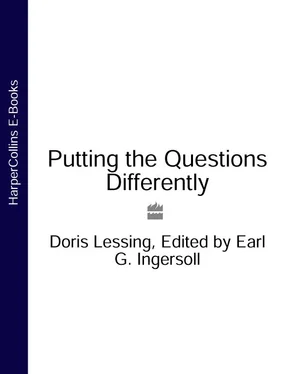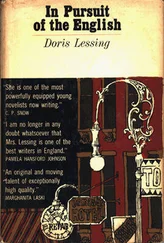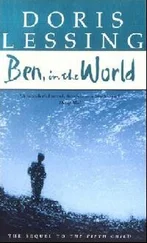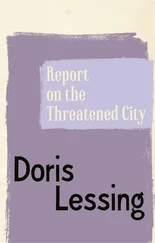I am not as optimistic as I used to be about oppressive societies. When I opened my eyes like a kitten to politics, there were certain soothing clichés about. One was that oppressive societies “collapsed under their own weight.” Well, the first oppressive society I knew about was South Africa. I lived close to it, and I was told that a society so ugly and brutal could not last. I was told that Franco and his Fascist Spain could not last.
Here I am, many decades later, and South Africa is worse than it was, Southern Rhodesia is going the same way, and Franco is very much in power. The tyrannical societies are doing very well. I’m afraid that the liberals and certain people on the Left tend to be rather romantic about the nature of power.
I’m not comparing tyranny to conformity. The point is that people who are willing to conform without a struggle, without protest to small things, who will simply forget how to be individuals, can easily be led into tyranny.
Newquist:But isn’t there strength in the middle road? In the area that lies between Fascism and Communism?
Lessing:I don’t know. I hope so, but history doesn’t give us many successful examples of being able to keep to the middle. Look at the difference between British and American attitudes toward Communism right now. Sections of America seem absolutely hypnotized by the kind of propaganda that’s fed to them. Now, if it is true that Communism is a violent threat to the world, then Britain – which has a different attitude – has been eating and working and sleeping for twenty years without developing ulcers, but America has ulcers. I would say that we are doing a better job of keeping to the middle of the road. You’ve got some rather pronounced elements who would like to head for the ditch or force a collision.
Hasn’t America been enfeebled by this hysterical fear of Communism? I don’t think you sit down to analyze what the word “Communist” means. You end up in the most ridiculous situations, as you did in Cuba. When you see what a great nation like America can do to muddle this Cuban thing you can only shrug your shoulders. Please don’t think I’m holding out any brief for my own government, but we’re in a lucky position. I mean, England is. We’re not very important, but America holds our fortunes in their large and not very subtle hands, and it’s frightening. When I went to Russia, in 1952, I came to the not-very-original conclusion that the Americans and Russians were very similar, and that they would like each other “if.” Now I see you moving closer and beginning to like each other, so now both of you are terrified of the Chinese, who will turn out (given fifteen years and not, I hope, too much bloodshed and misery) to be just like us, also. All of these violent hostilities are unreal. They’ve got very little to do with human beings.
Newquist:And very little to do with the arts?
Lessing:The arts, nothing! I was talking as a person, not a writer. I spent a great deal of my time being mixed up in politics in one way or another, and God knows what good it ever did. I went on signing things and protesting against things all the while wars were planned and wars were fought. I still do.
Newquist:To get back to your career, what are you working at now?
Lessing:I’m writing volumes four and five of a series I’m calling Children of Violence. I planned this out twelve years ago, and I’ve finished the first three. The idea is to write about people like myself, people my age who are born out of wars and who have lived through them, the framework of lives in conflict. I think the title explains what I essentially want to say. I want to explain what it is like to be a human being in a century when you open your eyes on war and on human beings disliking other human beings. I was brought up in Central Africa, which means that I was a member of the white minority pitted against a black majority that was abominably treated and still is. I was the daughter of a white farmer who, although he was a very poor man in terms of what he was brought up to expect, could always get loans from the Land Bank which kept him going. (I won’t say that my father liked what was going on; he didn’t.) But he employed anywhere from fifty to one hundred working blacks. An adult black earned twelve shillings a month, rather less than two dollars, and his food was rationed to corn meal and beans and peanuts and a pound of meat per week. It was all grossly unfair, and it’s only part of a larger picture of inequity.
One-third of us – one-third of humanity, that is – is adequately housed and fed. Consciously or unconsciously we keep two-thirds of mankind improperly housed and fed. This is what the series of novels is about – this whole pattern of discrimination and tyranny and violence.
Newquist:You have mentioned becoming involved with mescaline. Could you describe this in more detail?
Lessing:I’m not involved with it. I took one dose out of curiosity, and that’s enough to be going on with. It was the most extraordinary experience. Lots of different questions arise, but for our purposes the most interesting one is: Who are we? There were several different people, or “I’s” taking part. They must all have been real, genuine, because one has no control over the process once it’s under way. I understand that experiences to do with birth are common with people having these drugs. I was both giving birth and being given birth to. Who was the mother, who was the baby? I was both but neither. Several people were talking and in different voices throughout the process – it took three or four hours. Sometimes my mother – odd remarks in my mother’s voice, my mother’s sort of phrase. Not the kind of thing I say or am conscious of thinking. And the baby was a most philosophic infant, and different from me.
And who stage-managed this thing? Who said there was to be this birth and why? Who, to put it another way, was Mistress of the Ceremony? Looking back, I think that my very healthy psyche decided that my own birth, the one I actually had, was painful and bad (I gather it was, with forceps and much trouble) and so it gave itself a good birth – because the whole of this labor was a progress from misery, pain, unhappiness, toward happiness, acceptance, and the birth “I” invented for myself was not painful. But what do I mean, we mean, when we say “my psyche” – or whatever phrase you might use in its place?
And then there’s the question of this philosophic baby, a creature who argued steadily with God – I am not a religious person, and “I” would say I am an atheist. But this baby who was still in the womb did not want to be born. First, there was the war (I was born in 1919) and the smell of war and suffering was everywhere and the most terrible cold. I’ve never imagined such cold. It was cold because of the war. The baby did not want to be born to those parents (and remember the baby who was also its own mother) and this is the interesting thing, it was bored. Not the kind of boredom described in my story “To Room 19.” But a sort of cosmic boredom. This baby had been born many times before, and the mere idea of “having to go through it all over again” (a phrase the baby kept using) exhausted it in advance. And it did not want, this very ancient and wise creature, the humiliation of being smothered in white flannel and blue baby ribbons and little yellow ducks. (Incidentally I’ll never again be able to touch or look at a baby without remembering that experience, how helpless a baby is, caged in an insipid world of comfort and bland taste and white flannel and too much warmth.) This creature said to God, Yes, I know that boredom is one of the seven deadly sins, but You created me, didn’t You? Then if You gave me a mind that goes limp with boredom at the experiences You inflict on me, whose fault is it? I’ll consent (this baby said) to being born again for the millionth time, if I am given the right to be bored.
Читать дальше












